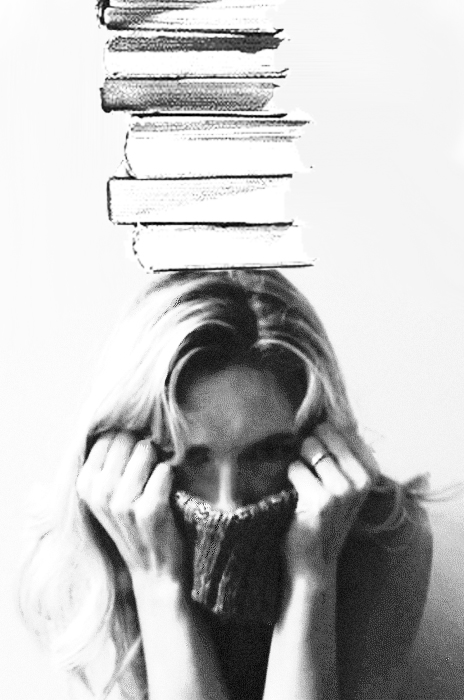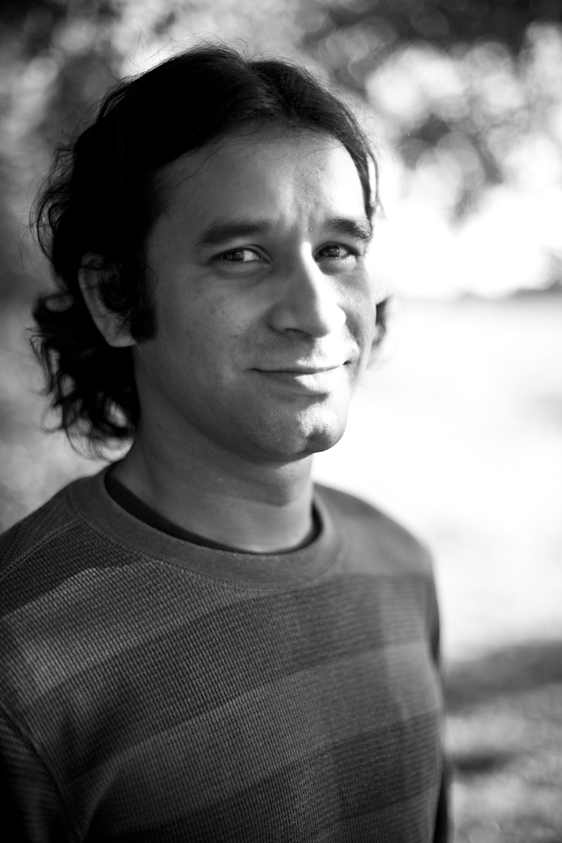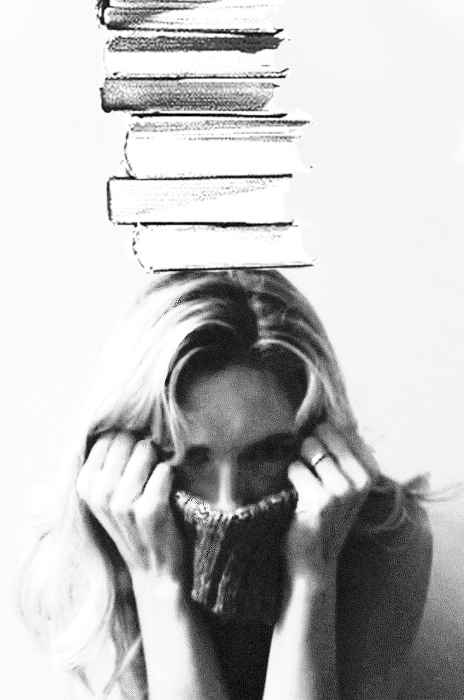NONFICTION | To the Life Raft

This afternoon a rejection note appeared in the corrugated metal interior of my mailbox. This particular note wasn’t unexpected, nor was the appearance of a resounding No thank you anything new. And so I was shocked and ashamed by the hurricane of grief that roared up from my feet as I read the words in middle of the country road.
The force of the loss reminded me of the Robert Redford film “All Is Lost,” in which a man in the middle of the Pacific Ocean abandons his devastated sailboat in a circular orange life raft. As he drifts, the camera pans slowly away, from both above and below, until the raft disappears in the middle of blue space. That sense of hopeless insignificance is what I felt when I read that letter, and perhaps the hopelessness engulfed me because it is exactly what I work against when I write. Your see, I believe in something perhaps best expressed by Virginia Woolf in her short memoir, “A Sketch of the Past.” She muses, “…it is a constant idea of mine; that behind the cotton wool is hidden a pattern; that we – I mean all human beings – are connected with this; that the whole world is a work or art; that we are parts of the work of art.”
And so I am not used to the sense that, despite the universe around us, it feels like we are utterly alone. I’m unaccustomed to the very real happenstance that a freighter or a cruise ship can pass near enough to touch –– though it’s so large and unwieldy that no one notices you in your life raft as you wave a flare and in your hoarse voice call out Here, here, I’m over here!
That letter in the mailbox made me feel like woman on a raft for other reasons, too. As Rebecca Solnit says in The Faraway Nearby, “a book is a heart that only beats in the chest of another.” On good days, I convince myself I’m not alone in the life raft of art-making because with me are all of the books I’ve read, those other muscular, beating hearts who now live in mine. Books, I suppose, are my kind of communion, a host of saints, and I hope it is not wrong to want more than to read those books, those saints. I want too to talk back to them, have my voice join all the others who have cried, Here, I’m over here! Together, we could bring our little rubber rafts together, and in my mind we become a vessel of our own making, an unwieldy but sturdy little shape in the ocean. But on other days, the discouraging days like today, I hear Solnit’s words as a warning that all of this writing is fine and good, but none of it is alive if it isn’t read by someone else.
Then I begin to wonder what risk I might have to take in order to capture the notice of others. At the end of “All Is Lost,” when Redford’s character has run out of water and hope, he sees one night a pinhole of light on the horizon. He readies his last flare, but in a desperate, crazed moment, he flings it aside and sets his journal and survival guide aflame. Fire engulfs the raft within seconds, and the man half falls and half jumps overboard. This is when he gives up. This is when he and the viewer know that his story – or his life, which is both bigger and smaller than a story – is over. He sinks down, down, down into darkness, so far that you’re sure he’s dead. The camera thinks this, too, and he becomes smaller and smaller in the sea. Then the lens pans up to the burning halo of raft. A dark shape of a boat creeps into its light, and Redford begins to kick, struggling upward until, in the last frame, his hand grasps another hand reaching toward him.
It has to be said that when I watched the film, I muttered, Dude, you’re stupid, when the character set fire to the paper in the raft. Yet the fire saved him, though only just. What is that line, between risk and futility, when you write? When and how do you set it all aflame and have it be noticed rather than destroy you?
And here is where I come back to Solnit, who gives me courage in addition to fear. The flame, the uncertainty, inspires in her possibility: “What if we only wanted openings, the immortality of the unfinished, the uncut thread, the incomplete, the open door, and the open sea … The quest is the holy grail, the ocean itself is the mysterious elixir, and if you’re lucky you realize it before you dock at the cup in the chapel.” She knows it is impossible, for any artist, to see where their work will lead. And it is wiser to embrace this ambiguity than to resolve it. Yet we try to reach certainty anyway, like a person in a lifeboat seeks land or another ship. We do this because we need, in some way, to find our place in the midst of the universe.
For writers, without our stories, little rafts lashed together with faulty memory and suffering and bits of information we might call fact, we cling to a space of meaning, even if no one ever finds us there, in the middle of the deep blue sea.
Cate Hennessey’s work has appeared in The Gettysburg Review, Chester County Dwell, and Polish American Journal. Noted in Best American Essays, she has also been a finalist for the Annie Dillard Award in Creative Nonfiction.
Ask the Editors | How to Get Involved
 In “Ask the Editors | How Do I Find Writing Community,” I discussed a writing student’s question regarding the topic and how being a writer is, by nature, an isolating craft. I mentioned a few general guidelines–getting involved, finding writer groups, being open to potential mentors–but I didn’t go into specifics. A reader wisely responded in an email: “Dear Rae. Read your article on community but could get no insight into the main questions–i.e. how to get community. The story regarding hardships. Is it yours or Malkovich’s?”
In “Ask the Editors | How Do I Find Writing Community,” I discussed a writing student’s question regarding the topic and how being a writer is, by nature, an isolating craft. I mentioned a few general guidelines–getting involved, finding writer groups, being open to potential mentors–but I didn’t go into specifics. A reader wisely responded in an email: “Dear Rae. Read your article on community but could get no insight into the main questions–i.e. how to get community. The story regarding hardships. Is it yours or Malkovich’s?”
I had to chuckle a little at the question on hardships and Malkovich. To answer: Yes, my mother brought me home to a trailer. Yes, I’m still paying off student loans. Yes, I was a single mother, at one time, trying to finish a graduate degree and working a full time job. It is possible that John Malkovich lived in a trailer and was a single parent pursuing a graduate degree and is paying off student loans, but I’m assuming any student loans he may have had early in his life have been satisfied at this point. More importantly, though, I’d like to respond to the specific question of how to get involved, because I think too many new writers and writing students still collected in the safe haven of the university womb have a particular idea of writing and writing community that rarely, if ever, is the reality.
More than once, I’ve taught workshops on campuses, at conferences, etcetera, where writing students are working under the belief that if they can just write the great American novel, an agent and big NY house editor is going to seek them out and swoop them up and all is going to be some linguistic version of a fairy tale. Sadly, this is not the usual experience. I dare say, it is a rarity. And the writers who do succeed in having their work picked up by an agent and editor often spend years wallowing in uncertainty, a constant questioning of self and craft and often asking themselves, Why am I doing this? The writers who are ultimately successful are often the ones who stick with it and work, work, work on craft. They often join writing communities and spend as much time supporting the good works of others as they do themselves. So what do you do in the meantime, while you’re wallowing and writing and improving your craft? You find like-minded writers who share your values and build relationships while guarding your writing time, butt in seat, hands at the pen or the keys, like a dog guarding its meat.
First, the Bukowski Model. Charles Bukowski, a much beloved author at Eckleburg, is a fantastic study on voice and dark humor, though, not so much on gender. The Bukowski is the sort of writer you will meet time to time, in many different venues. This writer will be funny and entertaining and even sometimes poignant, but this isn’t necessarily the writer who is going to be your best teacher or mentor for finding your own voice. The Bukowski will throw you in the deep end, which isn’t such a bad approach, though he will also laugh and drink whiskey while you drown. Be cautious of the Bukowskis whether or not they come with an MFA. Especially if they come with an MFA.
https://www.youtube.com/watch?v=MHRcKjvX1xE
The writing community is full of as many different aesthetics, priorities and community models as any market or industry. Before jumping in and getting involved–i.e. volunteering for a literary journal, starting a journal of your own, reviewing books, running a reading series, etc.–seriously ask yourself what values you have as a writer and community member and how you plan to identify these same values in the community, journal, reading series, reviews venue and so on. Keep in mind that there is a lot of talent in the writing community. Many talented writers, talented editors, talent, talent, talent. But this is only one piece of a complex makeup.
I learned early on that I have three main values I seek and try to model. I am not always perfect at modeling them and I try to remember that others are not always perfect in modeling them as well, but I do look for these when considering venues, individuals, and so on. (1) Craft. It always comes back to the narrative. I value others who believe in craft over marketing, following, Twittering, FBing, cliquing and so on. (2) Gender & diversity. Being a woman, I understand the position of gender and diversity and recognize the necessity of being aware. (3) Consistency. I have seen too many talented writers and editors start up and stop and move onto something else and take on too much until their career looks more like an entrepreneurial focus than a craft and community focus. I’ve always held that when Eckleburg first started (originally as Moon Milk Review), I had a responsibility to my contributors and staff to keep the journal going, take small and sustainable steps. I have had opportunities presented to me over the last few years that might have been flashier, and overall, more beneficial to my personal writing/editorial career, but I started Eckleburg and though it might be smaller and less flashy than other journals, I intend to keep it going as long as I have breath. Because I have a responsibility to our contributors, readers and staff. I founded it alone. It is my baby. To abandon it, even to pass it off, seems somehow wrong. Consistency. Craft. Gender & diversity. These are my main three focuses when considering value in writing community. I look for these when engaging myself or Eckleburg with other communities. So the first question I would ask a new writer looking for community is, what are your main values?
Once you’ve decided upon what is most important to you regarding writing community, spend time researching, reading, getting out to meet editors at events. Don’t jump into things without being certain the quality of the group and journal with which you are engaging will reflect the quality of your craft, personality and goals. Do not jump into a volunteer position with a big magazine simply because they are currently trending. Do not over-volunteer. You will quickly run out of resources, time and energy and all your projects will suffer. Keep in mind that indie editors are very aware of the intern/volunteer conundrum. We have all been there, for the most part. Many of us are volunteer and actually put our own funds into keeping our journal going. We all took our hits and worked worked worked. Because of this, we will more often than not, be helpful and gracious regarding volunteer schedules and will simply ask that you let us know what you are able to do and not do. But we do need to count on your commitment and consistency on projects to which you’ve committed.
You might be asking, but I want to know how to find a writing community that will help me write, not edit. In this case, I would suggest researching programs, online writer groups, local writer groups… There is no easy answer to this. You will have more access to writer groups simply by being involved with or volunteering with a literary journal, but this may or may not result in someone wanting to exchange critiques on short stories. Editors are very busy people. They are often pulled in more directions by more people than they can accommodate. They struggle to find time to write between family, editing and teaching, and they often have spent a good deal of time and money on programs to improve their own craft, editing and teaching. Asking them to spend time giving you feedback for free, unless they have offered or are receptive to a mentoring or reciprocal relationship, is unfair if one thinks on it. (Keep in mind a reciprocal relationship is built on a pairing of like aesthetics and craft levels so it can be very lovely for a new writer to offer reciprocal readings and feedback, and an objective read is always helpful, but it may not always give the in depth and experienced feedback that will be helpful to a writer who has been doing this for years.) Editors and writers are professionals. Their craft and time are valuable to them and it should be to you, too. For this reason, when approaching more experienced writers, it is often best to do it through professional writing workshop venues. There are online workshops, campus workshops, summer workshops, journal workshops, conference workshops and so on. Just a few would be The Eckleburg Workshops, Gotham Writers Workshops, Sackett Street Writers, The Writers Center and many more. Many literary journals offer fantastic summer workshops, such as Tin House and One Story. These workshops are excellent venues for improving craft, making connections and receiving feedback on your work.
If you do not have the resources for paid workshops, conferences or programs, then you can research open critique groups online; however, keep in mind these venues might be a combination of both experienced and inexperienced writers. Like any profession, those who put education and resources behind their craft will more often than not be the more successful and capable professional. Writing is no different. Really it isn’t. Sure, there are savants who can pick up a pen or a book and learn in short time how to remove an appendix. But I wouldn’t suggest having the savant try to teach you how to remove your own appendix. Not to say MFA and MA programs are for everyone. Surely not. But there are many writing workshops both online and brick and mortar that employ experienced, credentialed and published writing instructors at a far better rate than university programs while still offering the needed structure and professionalism of a program. One additional benefit is that you might find a more diverse artistic aesthetic in the non-university workshops.
If the workshop, conference and journal volunteering options aren’t right for you, then no worries. You CAN write alone. Writing is an isolating craft by nature. The isolation is essential if you want to form individual voice and context, versus becoming what might be considered a “clique” writer.
If time and resources force you to go it alone, for the most part, and you find yourself needing community, go to a local reading, introduce yourself, hang out, have a coffee or a beer or a glass of wine. Consider saving up for a workshop. A workshop every once in a while can do great things for your momentum and sense of belonging and you will likely meet at least one or two people who share your aesthetic.
Most importantly, identify first what is most important to you about your writing and identify how these values might be reflected in your ideal writing community. Be specific. Finding a fantastic writing community is a little like finding love. When you understand yourself as a writer and understand your values in craft, then you will be ready to seek it in others.



